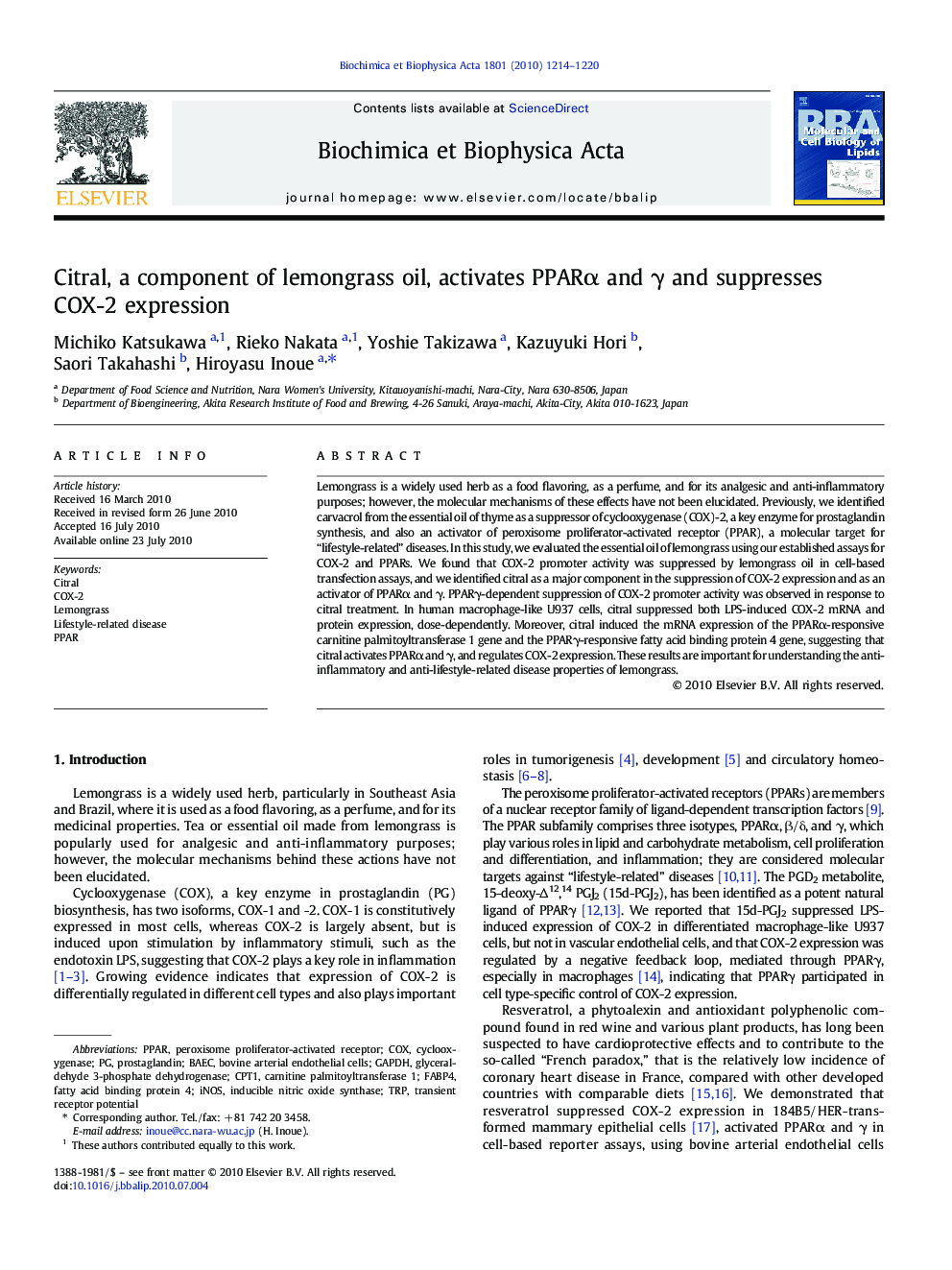| Article ID | Journal | Published Year | Pages | File Type |
|---|---|---|---|---|
| 1949587 | Biochimica et Biophysica Acta (BBA) - Molecular and Cell Biology of Lipids | 2010 | 7 Pages |
Lemongrass is a widely used herb as a food flavoring, as a perfume, and for its analgesic and anti-inflammatory purposes; however, the molecular mechanisms of these effects have not been elucidated. Previously, we identified carvacrol from the essential oil of thyme as a suppressor of cyclooxygenase (COX)-2, a key enzyme for prostaglandin synthesis, and also an activator of peroxisome proliferator-activated receptor (PPAR), a molecular target for “lifestyle-related” diseases. In this study, we evaluated the essential oil of lemongrass using our established assays for COX-2 and PPARs. We found that COX-2 promoter activity was suppressed by lemongrass oil in cell-based transfection assays, and we identified citral as a major component in the suppression of COX-2 expression and as an activator of PPARα and γ. PPARγ-dependent suppression of COX-2 promoter activity was observed in response to citral treatment. In human macrophage-like U937 cells, citral suppressed both LPS-induced COX-2 mRNA and protein expression, dose-dependently. Moreover, citral induced the mRNA expression of the PPARα-responsive carnitine palmitoyltransferase 1 gene and the PPARγ-responsive fatty acid binding protein 4 gene, suggesting that citral activates PPARα and γ, and regulates COX-2 expression. These results are important for understanding the anti-inflammatory and anti-lifestyle-related disease properties of lemongrass.
Research Highlights►Citral, a major component of lemongrass oil, activates PPARα and γ ►Citral suppresses COX-2 expression in a PPARγ-dependent manner. ►Citral induces expression of PPARα and γ-responsive genes.
